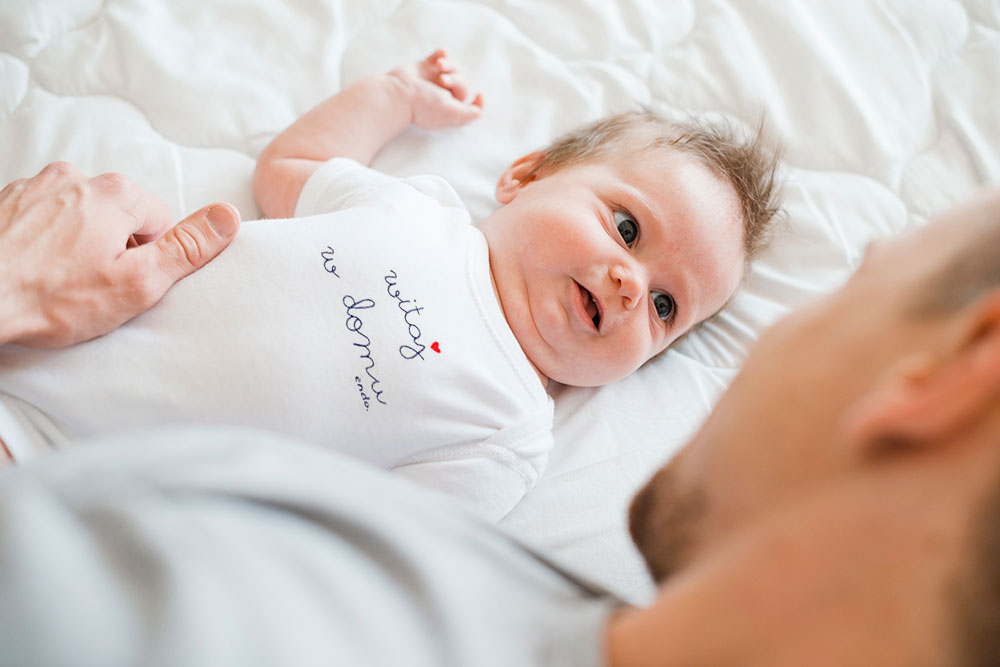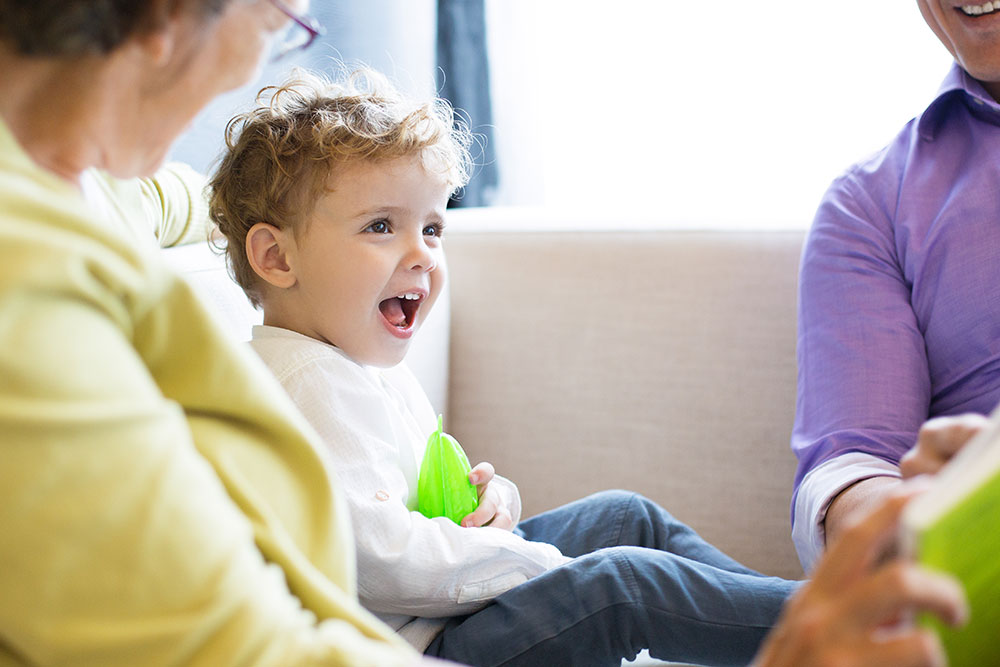
Parents eagerly await the moment when their children finally speak to them. It's a significant moment for the entire family. Language development skills are often a cause for concern. Some compare their children to their friends' children, feeling pressured and stressed when their child still utters single syllables while other children are beginning to say their first sentences. Is this really cause for concern?
When is the latest a child starts talking?
There's no specific time when a child should begin speaking . It's a complex process that begins after the first month of life, but at that point, it's difficult to consider it fully developed speech. The first words, intentionally spoken and recognized by an adult, may not appear until a year later. It can take up to two years to complete their first sentence . Each child develops individually, and speech skills are influenced by both their environment and their overall psychomotor development. Although delays in subsequent stages can typically occur (up to six months), irregularities should not be ignored. They could indicate, for example, hearing problems. A child who doesn't hear properly is also unable to repeat words correctly . In such cases, it's worth contacting a child counselor for a consultation with a speech therapist.

At what age do children start talking?
Learning to speak is a multi-stage process, and parents can track progress month after month . Let's see how a child's speech develops.
Month one
Immediately after birth, a baby can communicate with the world only in a very simplified way. Screaming and crying are the basic tools for communicating with parents . After a few weeks, the first vowel, "a," should appear.
Month two and three
During this period, babies begin to form vague monosyllables (e.g., "brrrr"), also known as cooing or cooing . This most often occurs when the baby lifts its head (and often involves a combination of these actions).
Fourth and fifth month
A baby responds to what is directed at them. They slowly try to imitate their parents' speech, i.e., they babble. They usually do this by using single syllables , which they choose more consciously. They usually reach this stage when they learn to sit up.
From the sixth to the eighth month
Your child begins to connect syllables and enjoys repeating them. They do this best when they connect the same syllables, such as "ma-ma" or "bum-bum." They readily direct their words at others and find the meaning of simple words.
From the ninth month
A baby can connect words with objects, so they can point out things like "where is the head" or "where is mommy." They choose syllables more thoughtfully. However, pointing to objects isn't a conscious use of words (it's more of a reflex of connecting associated things). They also often have a need to speak without having to be heard. This stage is often associated with standing upright. You can find baby tops perfect for the first months of life and for engaging in physical activity in our Endo online store.
From the tenth month
A child's speech includes simple questions. When dissatisfied, they can communicate this. During this time, they use echolalia. They respond to sounds in their environment, trying to imitate them immediately upon hearing them.
From the twelfth month
A child should already have a certain vocabulary of words with common meanings, which they use intentionally and which are understood by those around them. Often, the first such word is "no." Only then do they learn "mama" and "dada."

Up to one and a half years of age
A child can already use several dozen words. Learning new, simple words should come more naturally . At this time, the child can consciously use onomatopoeia (they will correctly respond when asked about the sound a given animal makes).
Up to the age of two
The child should be able to repeat more complex words and simpler sentences syllable by syllable.
Up to three years of age
The child can produce affirmative sentences of up to six words. They use nouns most often, followed by verbs.
After the third year of life
A child acquires a vast vocabulary and creates neologisms for phenomena they cannot yet precisely define. Speech is not necessarily clear, due to the developing speech apparatus and dentition (including the transition from baby to permanent teeth). This also involves simplifying expressions they deem too complex. This period can last until the age of 6 or 7.
Also check out the blog post about what does a newborn sleep in in the summer ?


Podziel się:
When does a baby start walking?
White noise for babies, or how to help your child fall asleep?